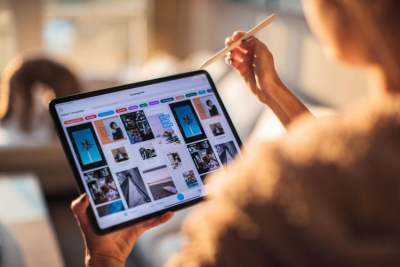What to look for when choosing an ethical tablet
Larger than a mobile phone but smaller than a laptop, a tablet is an in-between sort of device which may appeal to some people. If you want something light to carry around, with internet access, a big enough screen for reading, and enough capacity to work from on the go, it may be a better option than a laptop.
The reasonable sized screen can be idea for watching films, or reading books and magazines. Tablets are more portable than laptops and tend to have a longer battery life, and still give you capacity for a range of apps.
With models made by many of the big tech brands, are there any ethical tablets?
We rate and review the Apple iPad, Amazon Fire tablet, Microsoft Surface tablet, Samsung Galaxy Tab, and many others to find out which is the most ethical.
A fair tablet?
The first smartphone, IBM’s ‘Simon’, was launched in 1994 and it took 18 years before the Fairphone gave ethical consumers an ethical option. Will consumers have to wait as long before an ethically conscious tablet is produced? If you count Apple’s iPad as the first tablet, launched in 2010, we’d be waiting until 2028 for a Fair-tablet!
For now, consumers are stuck trying to distinguish between a number of ethically compromised brands, a task that this guide will help you with. It covers 20 of the largest tablet companies in the UK, focusing on the traditional ‘slate’ tablets that are sold without a detachable keyboard.
The ethical dilemmas in the tablets market mirror those of mobile phones and laptops, with supply chains often riddled with conflict minerals, dangerous toxic chemicals and poor labour standards.
As well as ethical issues arising from manufacture, this article will also consider the impact that tablets have on children’s development.



